Germany Expresses Concern Over Iran's Military Build-Up

Germany is watching Iran's increasing military build-up with concern, because of its destabilizing activities in the region and drone deliveries to Russia, the Foreign Ministry said Wednesday.

Germany is watching Iran's increasing military build-up with concern, because of its destabilizing activities in the region and drone deliveries to Russia, the Foreign Ministry said Wednesday.
The ministry also cited uranium enrichment in Fordow and the brutal repression of Iran's own population as other reasons for concern and said Germany was in close dialogue with partners in the region and within Europe as well as the United States on these developments.
Iran is increasing its stockpile of uranium enriched to 60 percent and in February news emerged that UN inspectors had found particles enriched to 84 percent.
Tehran has also delivered hundreds of kamikaze drones to Moscow to target Ukrainian infrastructure. The United States and European powers have warned the Islamic Republic to cease its intervention in Ukrainian war, as they have frozen nuclear talks with Tehran.
Iran designated two German diplomats as personae non gratae and is expelling them, foreign ministry spokesperson Nasser Kanaani said on Wednesday.
"The two German diplomats are being expelled due to their country's irresponsible interference in Iran's internal and judicial affairs," Kanaani said.
The US and its European allies have harshly criticized Tehran’s deadly crackdown on antigovernment protesters that killed 500 civilians and sent tens of thousands to jail.
The German foreign ministry said the expulsion was expected but "is arbitrary and unjustified.”
"They have done nothing wrong," the ministry added.
The move came after Germany expelled two employees of the Iranian embassy in Berlin last week in response to Iran sentencing a German national to death.
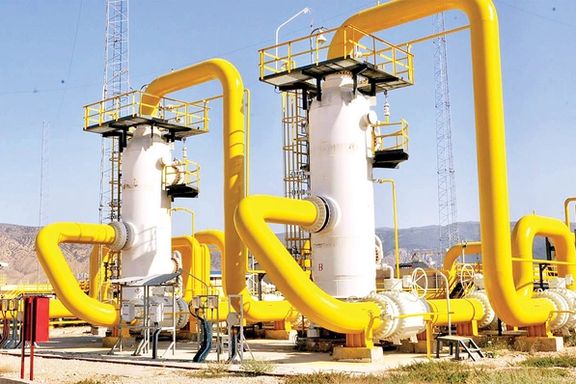
A delegation from Pakistan is due in Tehran soon for crisis talks to avert a possible $18 billion fine to Pakistan for its part in delaying the transfer of Iranian gas.
Officials from the ministries of energy, finance and foreign affairs will meet with diplomats in Tehran to discuss the crisis.
Local Iranian media reported that Tehran has told Islamabad that it must complete its share of a pipeline to receive gas from the Islamic Republic by the spring of next year, otherwise it will face a penalty of $18 billion.
The Iranian portion of the pipeline up to the border with Pakistan in eastern Iran is complete and was part of a 25-year deal to export Iran's natural gas signed between the two countries in 2009.
The project was supposed to be implemented by 2015, but international and US sanctions against Iran and Washington’s pressure on Islamabad have prevented its implementation so far.
The two sides inked a revised deal in September 2019, when Iran agreed not to take the matter to the international courts if Pakistan completed the pipeline by 2024. As the deadline draws near and Iran's economy continues to depend on non-sanctioning countries such as Pakistan, fears for the fruits of the deal are growing.
It is not clear why Iran is insisting on the completion of the pipeline while it has a natural gas shortage at home. Iranian production has been falling because of lack of investments in technology to increase
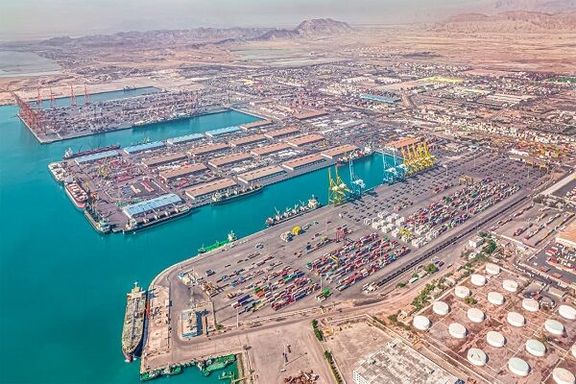
Iran International has obtained a letter from the intelligence ministry about eight ships carrying essential food that cannot be unloaded due to lack of foreign currency.
The secret letter, signed by chief of staff of the vice president’s office Mohammad-Reza Mohammadkhani, contains an intelligence ministry’s bulletin about the content of cargo onboard eight ships stranded at a port in Bandar Abbas, on the Persian Gulf. The letter was written on February 21 and a copy of it was sent to the Governor's office in the province.
In the letter, Mohammadkhani said that First Vice-President Mohammad Mokhber has already ordered the relevant authorities to immediately follow up and share the outcome with the intelligence ministry.
Iran’s government apparently suffers from a lack of foreign hard currencies essential to pay for imports. The Iranian rial has fallen 100 percent since September when nuclear talks with the West failed followed by antigovernment protests.
According to the document, the ships, which arrived in the Iranian waters from October to December, were ready to unload but the Central Bank of Iran has not provided the needed foreign currency to release them. Seven of the vessels carry shipments of wheat weighing about 435,000 tons, the other one is loaded with about 42,000 tons of soybean oil.
In the bulletin, the intelligence ministry also provided details about the names and amount of cargo of each ship as well as the exact date of their arrival at the harbor, but it did not mention how much currency is needed to unload the ships.
In another letter that was obtained by Iran International, Mohammad Kazemi, the deputy commander -in-chief of the IRGC’s intelligence organization had warned Mokhber of the perils of ships piling up at the ports. He expressed concerns that a lack of food security in society may lead to further protests.
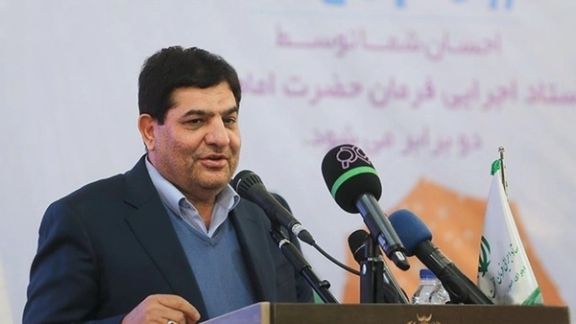
Moreover, another letter revealed a briefing by the secretary of Supreme National Security Council (SNSC) Ali Shamkhani about a meeting with food importers and other officials of the agriculture ministry. Warning the government of looming food shortages and higher prices, Shamkhani expressed concern about prices of animal feed, particularly warning that prices for maize, barley and soybean meal will rise and will affect the production of poultry, eggs, red meat, milk and dairy products. He said the prices of soybean meal will probably double in the next few weeks, leading to a jump in the cost of meat.
Earlier in the month, Iran’s Customs Administration said that at least eight million tons of essential goods have been piling up on ships anchored off the country's southern ports mainly due to payment issues. The deputy head of Customs said that the goods, a large part of which are food and animal feed, cannot be unloaded also due to lack of permits necessary for them to be cleared. Some of the essential goods need three or four permits from the Ministry of Health, Standards Agency and Plant Protection Agency, which oversees the quarantine processes. He said that about 1,800 to 2,000 trucks are being loaded every day and transferred from Imam Khomeini port, but the number of the trucks does not seem to be enough to avoid the blockage.
In January, Iran’s judiciary chief Gholam Hossein Mohseni Ejei said tens of ships have arrived in territorial waters of the country, but the Islamic Republic cannot unload them therefore the country must pay fines for the delay in discharging cargos.
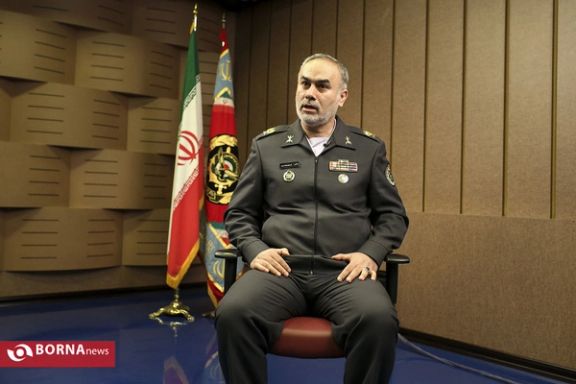
Iranian media say a "defensive" joint exercise by the Revolutionary Guard and the Islamic Republic Army will be held to counter "enemy aerial threats".
Brigadier General Abbas Farajpour, the spokesman for the "joint air defense exercise", said on Tuesday that the drills will be conducted in "two-thirds of the country's skies".
This comes after the National Security Committee of Iranian Parliament recently held a meeting with the officials of the ministry of intelligence regarding "recent events in Esfahan and Karaj".
Residents near Karaj, west of Tehran, published videos of explosions and anti- aircraft fire Thursday night, which the government media described as military drills by the IRGC.
One of these videos showed anti-aircraft tracer rounds soaring into the sky while an explosion can also be seen on the ground. There was no prior public notification of planned military exercises.
Some residents reported on social media that first a series of explosions were heard and then anti-aircraft guns began firing into the air.
Iran has been the scene of several suspected air attacks and sabotage operations since July 2020, largely ascribed to Israel. Any sound of aircraft or explosions usually jolts the population and leads to speculations of another attack taking place.
Serious acts of sabotage targeted Iran’s nuclear installations in 2020 and 2021 and several unexplained explosions occurred at military and naval bases.
The latest incident occurred on January 28 around midnight when a military manufacturing center in the city of Esfahan was attacked by drones.
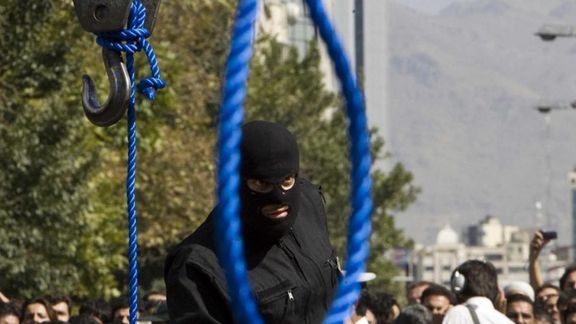
Over fifty countries from across the world have issued a joint statement addressed to the United Nations condemning the death penalty and executions in Iran.
The statement was deliveredby Vice Minister of Foreign Affairs of Costa Rica, Christian Guillermet at the 52nd session of the UN Human Rights Council in Geneva Tuesday.
“We are deeply concerned by the use of the death penalty in Iran. Several hundred people were reportedly executed in Iran between 2022 and 2023, including juvenile offenders,” he stated.
In recent months, Iran has handed down or sought to impose death sentences against dozens of individuals arrested in connection with their participation in protests following the death in custody of Mahsa Amini.
Iran has executed hundreds of prisoners since 2021 and in December hanged four protesters after sham trials.
“We are concerned by the nature of the offences for which the death penalty was applied the speed of the trials, lack of transparency, and credible reports that defendants did not have proper access to lawyers of their choosing and were subject to torture or other inhumane treatment,” read the statement.
The signatories called on Iran to respect the lives and voices of its people, to impose an immediate moratorium on the death penalty and to halt all executions, urging Iran to cooperate with all UN human rights mechanisms, including the Council’s Fact-Finding Mission.
Australia, Belgium, Canada, Denmark, France, Germany, Israel, Italy, Netherlands, Spain, Sweden, Switzerland, Ukraine, the UK, and the USA are among the countries that co-sponsored the joint statement.
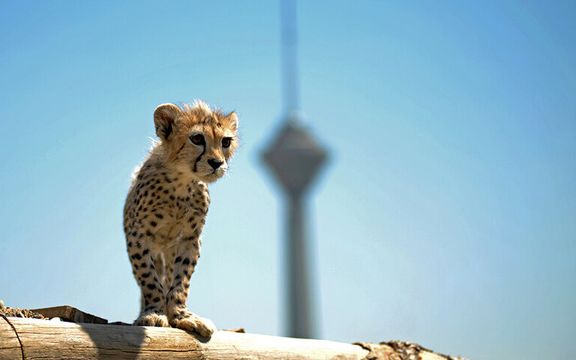
Iranians are sad and angry over the death of Pirouz, the last surviving Asiatic cheetah cub born in captivity in Iran that had become a symbol of hope for ongoing protests.
Pirouz, who died in the early hours of Tuesday due to kidney failure, became one of the icons of the current wave of protests against the regime after Grammy award winning singer-songwriter Shervin Hajipour mentioned his possible extinction in the revolution song ‘Baraye.’
Before its award for Best Song for Social Change at the Grammys 2023, Shervin’s song had become a viral sensation among millions of Iranians, who are protesting against the Islamic Republic for nearly six months now. The word ‘baraye,’ which means “for the sake of”, is repeated at the start of every line of the song, which is composed of a collection of tweets by Iranians bemoaning the situation in their country: “For dancing in the streets; for the fear of kissing; for Pirouz and its possible extinction”, and “for women, life, freedom”.
Doctors at Tehran’s Central Veterinary Hospital began dialysis procedures on Monday night but could not save the cub. “I apologize to the people on behalf of myself and all my colleagues because we couldn’t keep Pirouz alive,” said Amir Moradi, the head of the hospital, in a video message.
Pirouz’s two other siblings had died in May 2022. The second offspring of the Asiatic cheetah, called Iran, died apparently due to problems caused by poor quality milk just two weeks after the first cub from the litter died, purportedly due to “congenital malformation of the left lung”. Their deaths drew widespread criticism, prompting Iran’s Department of Environment to set up a fact-finding taskforce to assess any shortcomings and negligence in dealing with the reproduction process. No findings were announced by the taskforce.
The cubs were born in the Touran Wildlife Refuge by caesarean section on May 1, in what the department said was the first birth of an Asiatic cheetah in captivity. Iran is the last country in the world where the critically endangered Asiatic cheetah can be found in the wild, where authorities launched a United Nations-supported protection program in 2001. In January, deputy environment minister Hassan Akbari said only a dozen individuals were left in the wild -- down from an estimated 100 in 2010.
Social media has exploded with photos and artworks created for Pirouz. People are also re-sharing a video showing Pirouz’s last moments in hospital. Many people blame the authorities for a lack of care, but some believe that the negligence was intentional as Pirouz -- literally meaning Victor in Persian -- had become a symbol of triumph for the ongoing protests. Pro-regime hardliners had earlier called for changing the name of the cub to a religious one.
As hashtags about Pirouz have become trendy on social media, some people and activists used the opportunity to speak about the environmental conservationists jailed in the country since 2018, condemning the regime for imprisoning the most efficient and erudite scientists.
“Wasn’t it enough for you that you detained the best wildlife scientists whose goal was to protect the cheetahs in their habitat?” asked Majid Ghazanfari, a conservationist and former TV presenter that left the state broadcaster in support of the protests, slamming the authorities for their inefficient project for reproduction in captivity. There are reports in media that the Pirouz’s mother, Iran, is pregnant again.
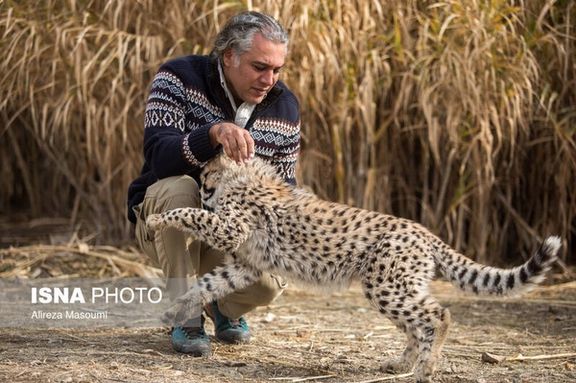
Iranian sociologist Mohammad Fazeli tweeted that reactions to Pirouz’s death indicates that people have become more sensitive about environmental issues. Let's express similar sensitivity for the death of water bodies, soil erosion, destruction of the forests and extinction of Zagros oak trees, constructions in the northern forests, pasture erosion, and other destructive projects and anti-environmental economy, he said, adding, “Pirouz died, long live environmental awareness and sensitivity!”
Earlier in the month, Etemad daily reported that while the Islamic Republic has launched wide-scale propaganda regarding the conditional release of some political prisoners, there has been no amnesty for environmental activists. According to the report, there are still seven environmental activists behind bars while more than five years have passed since they were arrested. Nine environmentalists and ecologists were arrested in 2018 on charges of espionage. All were members of the Persian World Heritage Foundation, an NGO dedicated to conserving wildlife in Iran, and are serving sentences from four to 10 years. Kavous Seyed-Emami, the NGO’s founder, was found dead in his cell two weeks after his detention, with the authorities reporting suicide and the family denying the claim.
Earlier in the week, imprisoned civil and human rights activist Narges Mohammadi, along with 20 of other female political prisoners, issued a statement calling for the release of the environmentalists. They said the case against them is bogus and countless human rights violations are evident in it.
